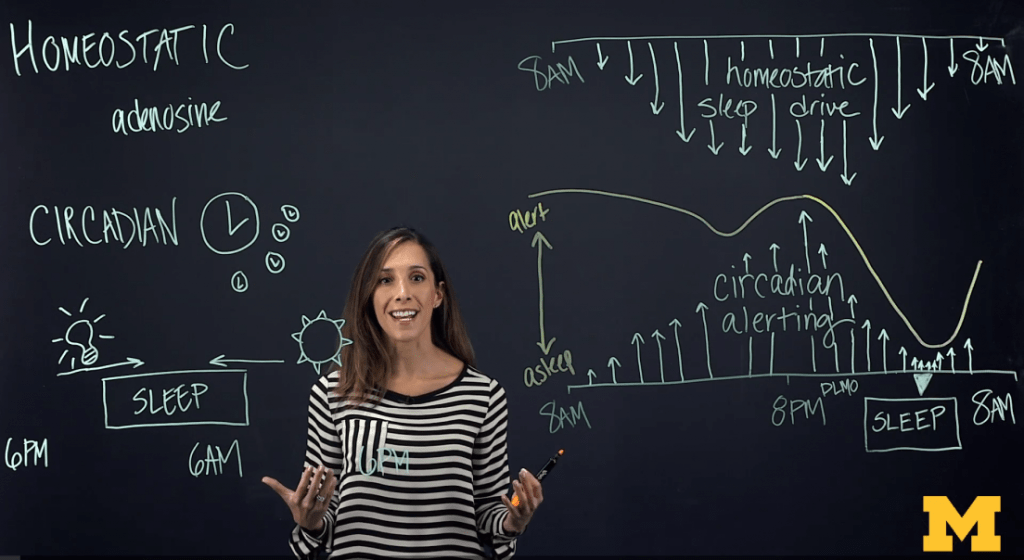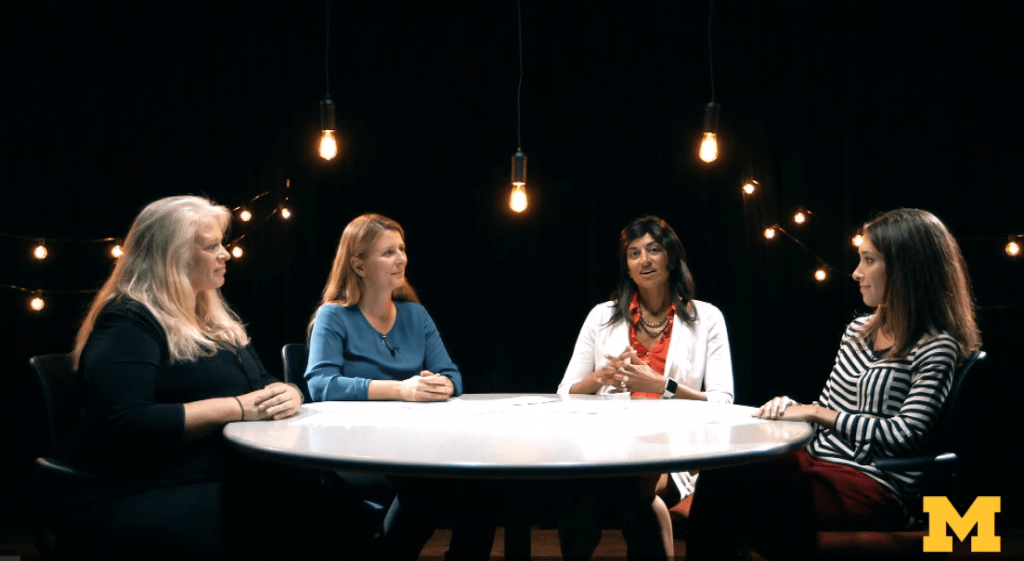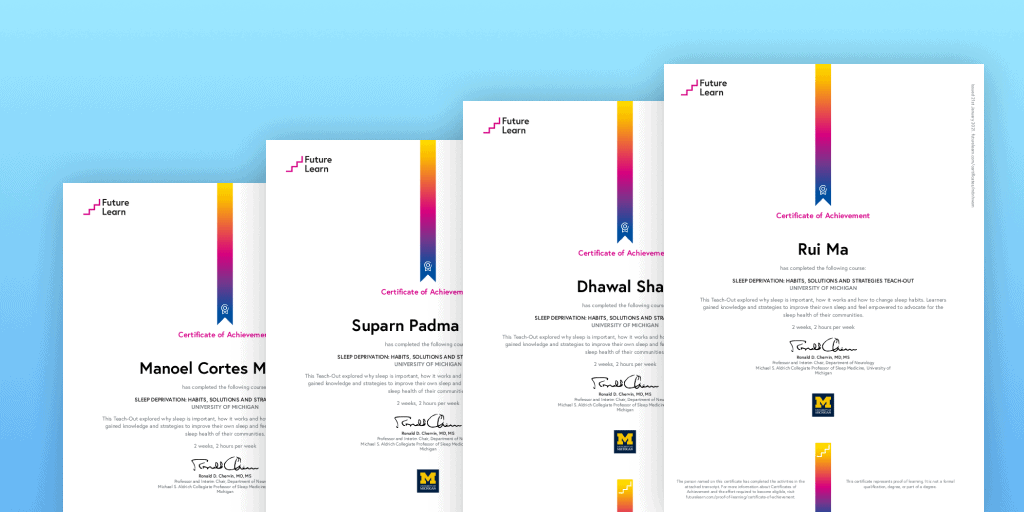The Study Group Tries to Get Some Sleep
Class Central’s Study Group takes a course about sleep deprivation and how to get better sleep.
Recently, Class Central’s Study Group tackled Coursera’s Social Psychology course. While a few members of the Study Group managed to finish it, the course’s hefty workload also got the best of some of us, including myself — I threw in the towel a few weeks in.
So when I got the opportunity to pick our next course options, I tried to mix things up a bit. I included a couple of courses about subjects I thought could make for a nice change of pace: one course was about sleep; another was about nutrition; both were fairly short courses.
As a fully remote team distributed across time zones ranging from the US’ west coast to Australia’s east coast, it can be tricky to keep a 9–5 work schedule. When we have team meetings, for instance, some team members inevitably have to wake up early or stay up late. So we could probably all use a little help improving our sleep.
We voted to pick which course to tackle next, and the sleep course won by a hair. And just like that, Class Central’s Study Group embarked on a journey toward longer, more restful sleep. Or so we hoped.
Overview
Sleep Deprivation: Habits, Solutions and Strategies is offered by the University of Michigan on several platforms, including FutureLearn, which is where we decided to take the course. The course is a teach-out, which Michigan describes as mini-courses that try to address topics relevant to today’s society — in this particular case, sleep deprivation.
The mini-course takes about four hours to complete. It is taught by a large team of instructors that includes Dr. Anita Shelgikar, Dr. Cathy Goldstein, and Dr. Ronald Chervin. And it approaches the topic of sleep deprivation through a wide variety of teaching styles, including expert interviews, blackboard explanations, and round tables.
One thing I noticed is that, with the exception of a few videos, the course can practically be treated as a podcast, since it favors teaching through conversation rather than visual cues.
The course is split into two sections. The first section focuses on theory: it explains what sleep deprivation is and the dangers it entails, it delves into sleep cycles and the science that underpins them, and it allows learners to take a test to evaluate their level of sleepiness. The second section is more practical: it gives concrete advice on how to improve your sleep.
Teaching Style

A few videos into the course, it became readily apparent that no efforts nor expenses were spared developing the course. We’re a far cry from a PowerPoint presentation voiced over by a lone instructor. Instead, the course is taught by a team of six physicians and features multiple guest speakers. The video lessons approach the topic of sleep in a wide variety of ways, often relying on conversation as a conduit to learning.
The course avoids falling into a routine. Some lessons involve choreographed exchanges between instructors on topics such as the prevalence of sleep deprivation in today’s world. Others take it to the blackboard for technical explanations about the science that underpins sleep. And others use props to illustrate concepts, such as how to create a bedtime routine.
None of these approaches is particularly unique. But online courses typically use a single approach, while this course uses a wide variety of them. Videos are crisp and the instructional design is on point. There’s definitely a noticeable sense of quality to the course.
Don’t get me wrong. Some of the best online courses I’ve taken simply involved a slides presentation and a passionate instructor. But admittedly, in this course, the variety helped keep me engaged, while a drier approach to the subject might have put me to sleep.
Content

While in terms of form, the course was original in its variety, in terms of content, it turned out to be more standard. Personally, I learned a lot during the first half of the course, and I particularly enjoyed the videos about sleep cycles, and their mechanisms and chemistry.
But the second part of the course — the one about how to sleep better — was the one I think most of us were looking forward to. Unfortunately, for several of us, this part proved to be less useful than we’d hope. To improve your sleep, instructors suggest among others:
- Creating a bedtime routine to help you relax.
- Wearing a sleep tracker to monitor your sleep.
- Going to bed at the same time every day, weekends included.
- Avoiding screens, heavy meals, and intense exercise near bedtime.
@dhawal found that most of these suggestions were things he’d heard before. And I (@manoel) felt the same way. But in my case at least, these suggestions definitely bear repeating, since despite having heard them before, I’ve yet to follow most of them consistently.
@pat, by contrast, did try to follow these tips consistently before. But she found that they didn’t make a whole lot of difference in her case. This raises the question: if you have trouble sleeping, and you’ve already tried the “standard” suggestions, what should you try next?
But there’s only so much you can cover in a four-hour course. So the course doesn’t really answer this question. This limitation is compounded by the fact that a significant number of video lessons are dedicated to the negative consequences of sleep deprivation on health:
“Common solutions [to sleep deprivation] were discussed, but not a lot was offered for people who tried them but still have trouble sleeping,” explains @pat, adding via DM “So, hearing about the health issues of sleep deprivation didn’t help my frame of mind!”
So if you’ve already explored the subject of sleep and are looking for an in-depth take, you may want to turn toward a full-fledged course such as Sleep: Neurobiology, Medicine, and Society, which features some of the same instructors but has over 20 hours of content.
However, for those looking for a gentle introduction to sleep science and for general advice on how to improve your sleep, I think this mini-course could be a great fit. This has been echoed by other members of our Study Group.
For instance, @vishnu found that the course helped him understand different sleep patterns. And one of @rui’s takeaways was that the “most direct solution [to sleep deprivation] is sticking to a strict bedtime routine,” a suggestion I’ve also been following with some success since finishing the course — baby steps!
Tags








Zorica Vasic
I know that your main field of interest are the MOOCs, but I suggest that you check the January episodes of prof. Huberman’s podcast, all dedicated to sleep:
https://www.youtube.com/c/AndrewHubermanLab/videos?view=0&sort=da&flow=grid